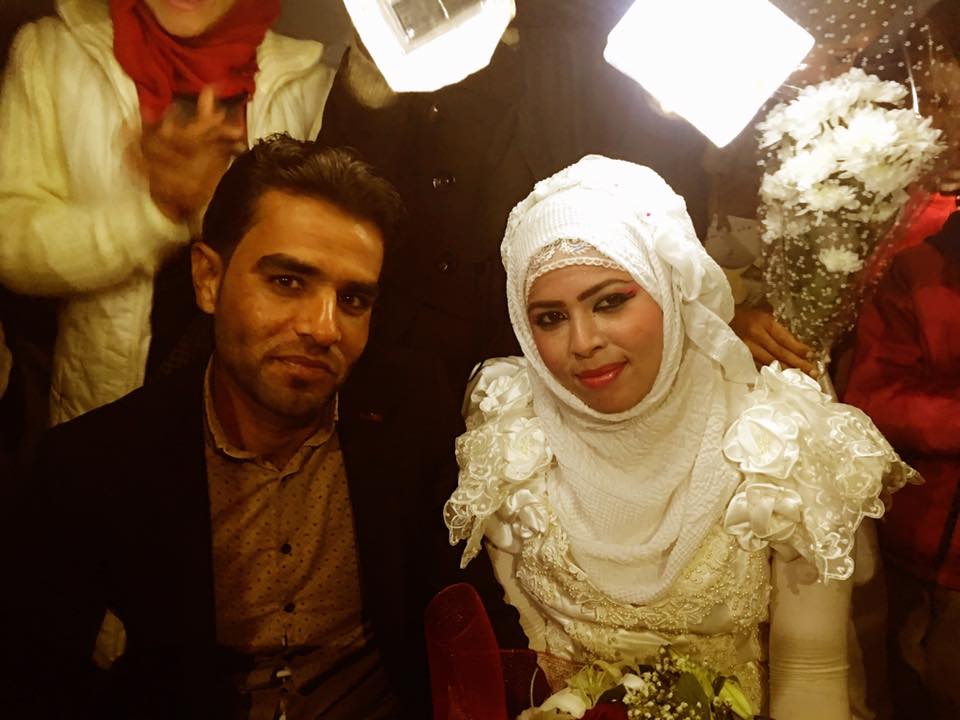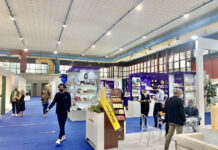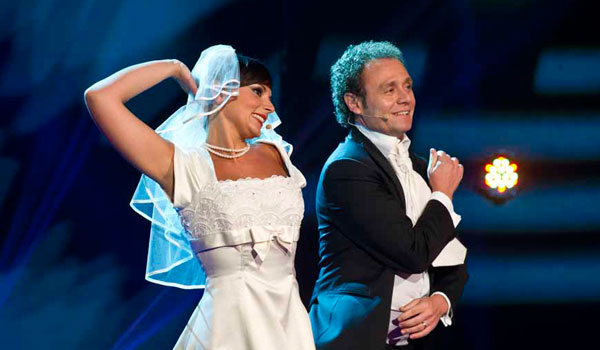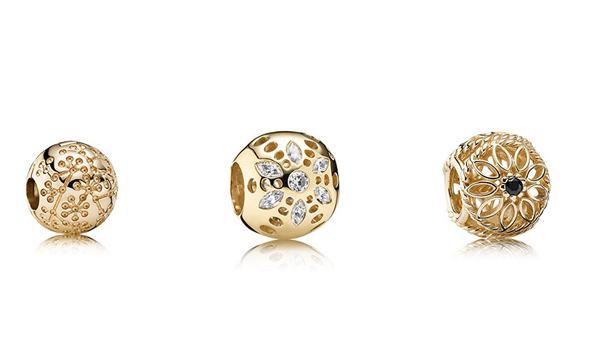È stata una settimana difficile per i profughi accampati sul confine tra Grecia e Macedonia. Nonostante le condizioni squallide, si è svolto per la prima volta un matrimonio nel campo profughi di Idomeni. Sono più di 50.000 le persone bloccate in Grecia – da quando è stato chiuso il confine con il Nord Europa, circa due mesi fa – e che vorrebbero andare avanti con le loro vite, alla costante ricerca di normalità. Saher e Roquia erano fidanzati da quattro mesi. Volevano aspettare di raggiungere la Germania per sposarsi, ma si sono resi conto che l’impresa potrebbe richiedere anche anni, e hanno deciso di non aspettare. “Sono felice, naturalmente, per il matrimonio, ma sono molto triste – dice Saher -. Il mio unico desiderio è che la Siria, la mia terra, sia di nuovo sicura per tornare.“
La notizia ha raggiunto anche il vicesindaco della vicina Peonia, Ioannis Avramopoulos, proprietario di un atelier di abiti da sposa, che ha donato il vestito, a condizione che sia riutilizzato anche dalle altre donne che desiderano sposarsi. Per una volta, non c’erano lacrime di tristezza nel campo illuminato solo dal fuoco, ma gioia e un clima di festa. Con la danza e la musica a tutto volume, proveniente dai telefoni cellulari e da piccoli altoparlanti. Sotto una tenda sollevata su assi di legno – per evitare che si allaghi – i volontari hanno sistemato delle piccole lampade, petali di rosa sul letto nuziale di fortuna e sopra un piccolo tavolo incensi e sigarette. “I miei genitori sono ancora in Siria e non possono essere con me, questo mi rende molto triste – dice Saher – ma la gente di Idomeni è la mia famiglia ora“.
Gli ospiti alla festa, entusiasti di congratularsi con la coppia, hanno potuto portare con loro gli auguri per un futuro felice e un matrimonio prospero, ma niente regali. Molti hanno speso i risparmi di una vita per fuggire dalle violenze. A chi gli fa visita mostrano le fotografie di quello che hanno lasciato, le loro case, cumuli di macerie. Una donna ha raccontato ai giornalisti della Bbc – che hanno dato notizia del matrimonio tra Saher e Roquia – gli orrori dai quali è fuggita, mostrando le bruciature di sigaretta inflitte al suo bimbo di sette mesi, dai militanti del sedicente stato islamico. L’UE sta ancora lottando per raggiungere una soluzione praticabile alla crisi dei migranti, e la vita deve andare avanti, in qualche modo.
THE FIRST WEDDING FOR SYRIANS IN MUDDY CAMP
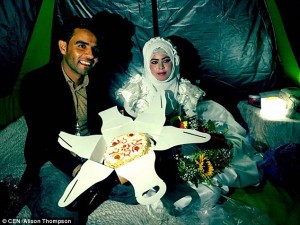
It has been a tough week for the refugees camped out on the northern Greek border with Macedonia. Despite the squalid conditions, the makeshift camp of Idomeni is witnessing something of a marriage phenomenon. In the past few days, a handful of couples have become engaged and the camp has become a wedding venue for the first time. They are among more than 50,000 people stranded in Greece. They fear being forgotten and demand safe passage to continue their journeys. But life at Idomeni is also about survival and a constant search for normality. Saher and his fiancee, Roquia, had been engaged for four months. They wanted to wait until they reached Germany to be married but, as they realised that might take years, they decided they could not wait any longer. “The borders won’t open anytime soon, so we thought why not marry now?” said Saher. “I am happy of course to be married, but I am sad too. “My only wish is that eventually the whole of Syria will be safe and I can return.”
As word got round that the couple were to have a party, the news also reached the deputy mayor of nearby Paionia, Ioannis Avramopoulos, who also happens to own a wedding dress factory. Without hesitation, he donated a dress, on the condition it be used afterwards for other women wishing to marry. For once, there were no tears of sadness in the camp, but tears of joy and an atmosphere of celebration. With dancing and music blaring from mobile phones and small speakers. Small lamps were brought by volunteers, rose petals were thrown onto a makeshift honeymoon suite – a tent raised on wooden planks so as not to get flooded. Inside it, a little table had been set up with perfume and cigarettes. “My parents are still in Syria and cannot be with me – and that makes me very sad” said Saher. “But the people of Idomeni have become my family now.”
The guests at the party, eager to congratulate the couple, brought with them wishes for a happy future and prosperous marriage, but no gifts. Many have spent their life savings on escaping violence and have few euros left. They often show visitors to the camp pictures and photographs of what they left behind. Their homes are now a pile of grey rubble. One woman is permanently reminded of the horrors she managed to escape. Her seven-month-old baby bears the scars of cigarette burns inflicted by so-called Islamic State militants. The EU is still struggling to reach a viable solution to the migrant crisis. And life must go on, somehow.


